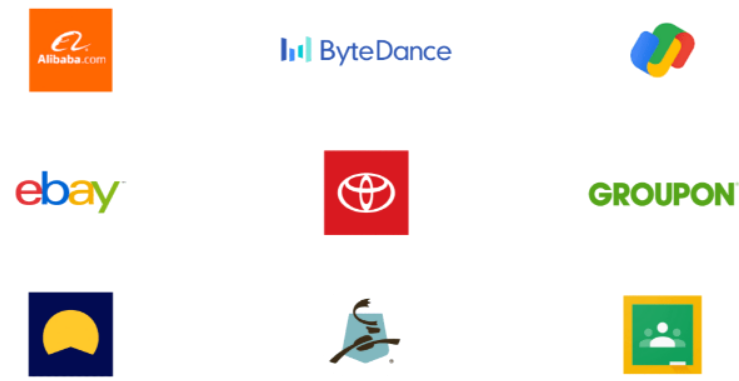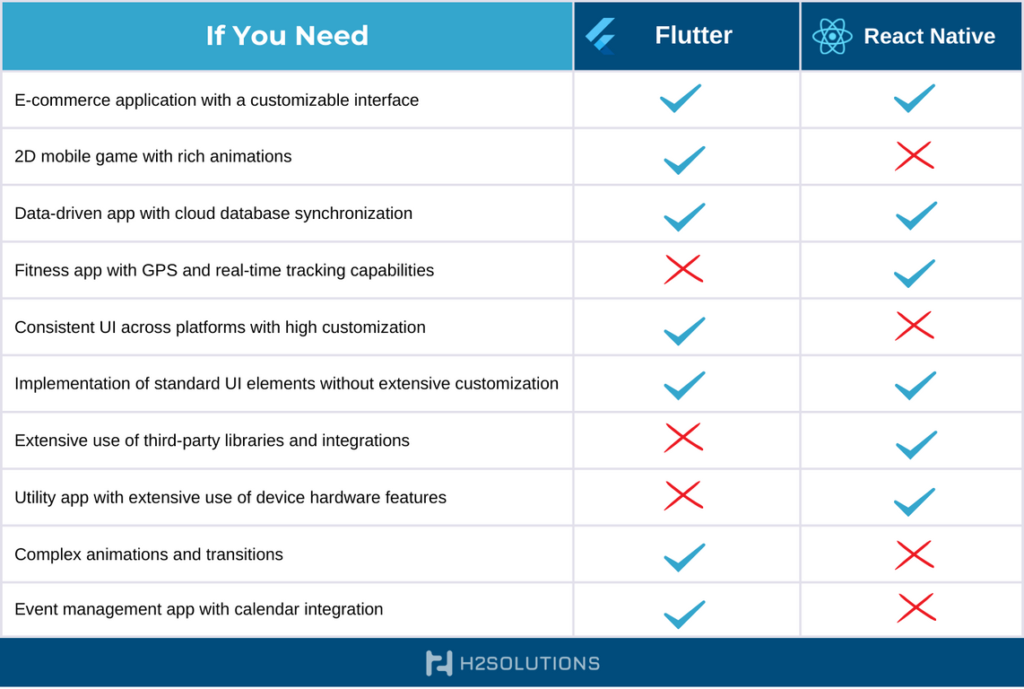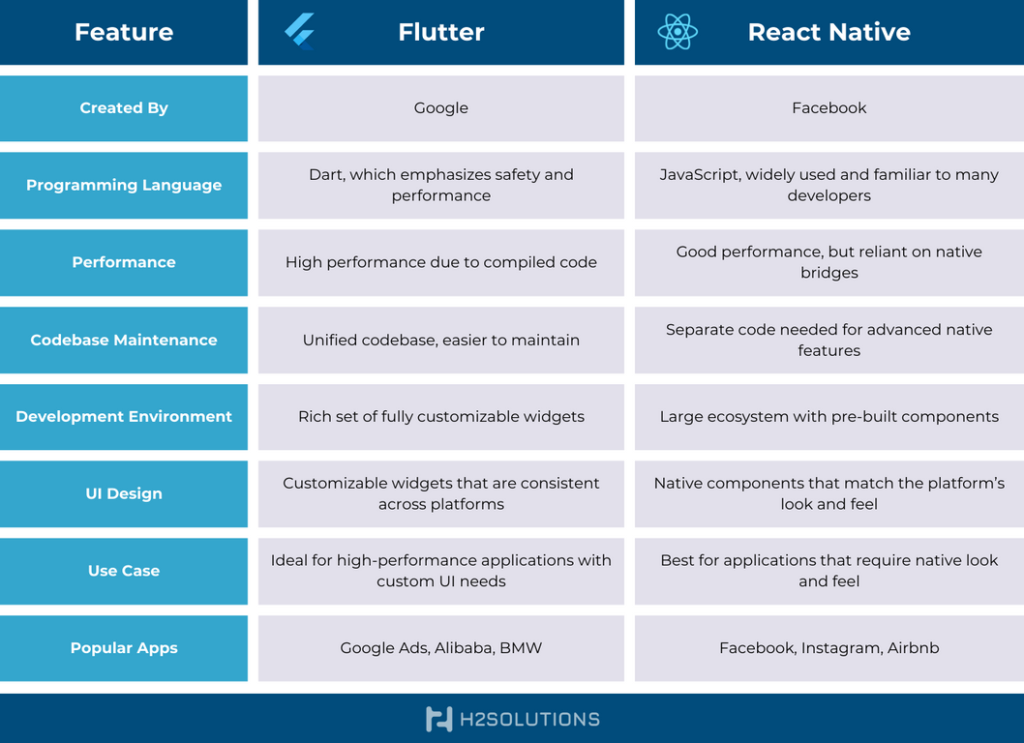In the dynamic world of mobile app development, choosing the right framework is crucial for the success of your project. The ongoing debate between using Flutter and React Native is more relevant than ever as each framework offers unique advantages and has its own loyal followings among developers.
Flutter, developed by Google, and React Native, created by Facebook (now Meta), are leading platforms in cross-platform app development. Each offers a distinct approach to building mobile apps that function seamlessly across iOS and Android. This article dives deep into the capabilities, benefits, and use cases of these two platforms to help you make an informed decision for your next mobile app project.
What is Flutter?
Flutter is an open-source UI software development kit created by Google. It allows developers to build natively compiled applications for mobile, web, and desktop from a single codebase. This means you can develop one app that runs on various devices, including both Android and iOS smartphones, without needing to rewrite the app for each platform.
How Flutter Works
Flutter utilizes the Dart programming language, also developed by Google. Dart is a type-safe language which ensures that the code you write is checked for errors in types (like ensuring a string isn’t mistakenly used where a number is expected) before the app is built. This approach makes the development process smoother and safer.
In Flutter, everything is a widget — from a simple button to an entire screen. These Flutter widgets describe what their view should look like given their current configuration and state. When a widget’s state changes, the widget rebuilds its description, and the framework determines the minimal changes needed in the UI for the transition.
Key Features of Flutter
Hot Reload: See code changes reflected immediately in the app—especially useful for UI adjustments.
Rich Set of Widgets: Offers a comprehensive array of widgets that follow Google’s Material Design and Apple’s Cupertino aesthetics.
Performance: Flutter’s applications are compiled into native code, which helps in achieving stellar performance akin to native applications.
Enhance your app development strategy. With H2 Solutions, dive deep into the innovative worlds of Flutter. Get in touch now to discover more!
Use Cases for Flutter
Flutter is ideal for developing full-featured apps including real-time utilities, large-scale systems like e-commerce platforms, and even games.
Here you can see some of the companies using Flutter

What is React Native?
React Native is an open-source mobile application framework from Facebook. It allows developers to create natively rendered apps for iOS and Android using React, a popular JavaScript library for building user interfaces.
React Native Elements provides a robust set of pre-built, customizable components that enrich the UI, enhancing the look and feel of your apps across all platforms with minimal effort. These elements provide a uniform design language that can be shared across both web and mobile, ensuring consistency and speeding up the development workflow.
How React Native Works
React Native App development combines native development with React, enabling you to write your app with JavaScript and React, while the framework uses native components underneath. This bridge between your code and the native platform it runs on brings many Web Development tools and techniques to mobile app creation.
Key Features of React Native
Live Reloading and Hot Reloading: Instantly view changes without rebuilding the app.
Native Components: Uses native components for both Android and iOS to deliver a genuine native user experience.
JavaScript Ecosystem: Access to a massive library of JavaScript tools and frameworks.
Use Cases for React Native
React Native is perfect for apps that require a native look and feel, leveraging existing JavaScript and React skills. It’s widely used in social media apps, marketplaces, and interactive applications.

Ready to elevate your mobile app experience? Contact H2 Solutions today to harness the power of React Native for your next project. Let’s build something amazing together!

Flutter vs React Native
When comparing Flutter vs React Native, developers and businesses are faced with a decision that hinges on various critical factors that influence the success of mobile app development.
Flutter, with its rich set of high-performance widgets and hot reload feature, is acclaimed for its fast development and native compilation, making it a strong contender for projects requiring a custom UI and high performance.
React Native boasts live reloading and a vast JavaScript ecosystem, aligning perfectly with projects that prioritize a native look and feel, as well as the reuse of code across web and mobile platforms.
Ultimately, the choice in the “Flutter vs React Native” debate depends on project specifics, developer expertise, and the desired user experience. Whether prioritizing rapid development with a ready-made UI or requiring extensive JavaScript libraries, the decision will lay the foundation for the mobile app’s architecture and future scalability.

Mastering Flutter & React Native for Your Business
Looking to transform your mobile app vision into a stunning reality? H2 Solutions is your go-to expert. With our deep expertise in both Flutter and React Native, we tailor our approach to fit your unique requirements, ensuring your app performs flawlessly across all platforms. Whether you’re leaning towards the customizable Flutter widgets or the comprehensive JavaScript libraries of React Native, our team has the skills to bring your project to life. Don’t settle for anything less than perfection. Visit H2 Solutions today and take the first step towards building a cutting-edge mobile app that stands out in the digital marketplace. Book your free consultation here.
Conclusion
Both Flutter and React Native offer powerful tools for cross-platform development, enabling the creation of beautiful, high-performance apps from a single codebase. Your choice between them will likely depend on your business specific needs and the skills available within your development team. Flutter might be more suitable if you seek high performance and an extensive set of ready-made Flutter widgets, whereas React Native could be the better choice for leveraging a vast JavaScript ecosystem and achieving closer integration with native functionality.